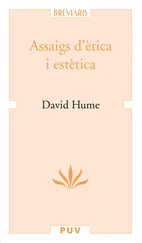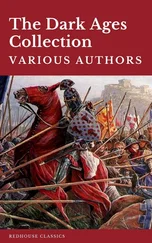Gaïnas marched by the Via Egnatia to Constantinople, 20and it was arranged that, according to a usual custom, 21the Emperor and his court should come forth from the city to meet the army in the Campus Martius at Hebdomon. We cannot trust the statement of a hostile writer that Rufinus actually expected to be created Augustus on this occasion, and appeared at the Emperor’s side prouder and more sumptuously arrayed than ever; we only know that he accompanied Arcadius to meet the army. It is said that, when the Emperor had saluted the troops, Rufinus advanced and displayed a studied affability and solicitude to please even towards individual soldiers. They closed in round him as he smiled and talked, anxious to secure their goodwill for his elevation to the throne, but just as he felt himself very nigh to supreme success, the swords of the nearest were drawn, and his body, pierced with wounds, fell to the ground (November 27, A.D. 395). 22His head, carried through the streets, was mocked by the people, and his right hand, severed from the trunk, was presented at the doors of houses with the requirement, “Give to the insatiable!”
There can be no reasonable doubt that the assassination of Rufinus was instigated by Stilicho, as some of our authorities expressly tell us. 23The details may have been arranged between him and Gaïnas, and he appears not to have concerned himself to conceal his complicity. The scene of the murder is described by a gifted but rhetorical poet, Claudius Claudianus, who now began his career as a trumpeter of Stilicho’s praises by his poem Against Rufinus . 24He paints Stilicho and Rufinus as two opposing forces, powers of darkness and light: the radiant Apollo, deliverer of mankind, and the terrible Pytho, the scourge of the world. What we should call the crime of Stilicho is to him a glorious deed, the destruction of a monster, and though he does not say in so many words that his hero planned it, he does not disguise his responsibility. Claudian was a master of violent invective, and his portrait of Rufinus, bad man though he unquestionably was, is no more than a caricature. The poem concludes with a picture of the Prefect in hell before the tribunal of Rhadamanthys, who declares that all the iniquities of the tortured criminals are but a fraction of the sins of the latest comer, who is too foul even for Tartarus, and consigns him to an empty pit outside the confines of Pluto’s domain.
Tollite de mediis animarum dedecus umbris.
adspexisse sat est. oculis iam parcite nostris
et Ditis purgate domos. agitate flagellis
trans Styga, trans Erebum, vacuo mandate barathro
infra Titanum tenebras infraque recessus
Tartareos ipsumque Chaos, qua noctis opacae
fundamenta latent; praeceps ibi mersus anhelet,
dum rotat astra polus, feriunt dum litora venti.
It was not only the European parts of the dominion of Arcadius that were ravaged, in this year, by the fire and sword of barbarians. Hordes of trans-Caucasian Huns poured through the Caspian gates, and, rushing southwards through the Armenian highlands and the plains of Mesopotamia, carried desolation into Syria. St. Jerome was in Palestine at this time, and in two of his letters we have the account of an eye-witness. “As I was searching for an abode worthy of such a lady (Fabiola, his friend), behold, suddenly messengers rush hither and thither, and the whole East trembles with the news, that from the far Maeotis, from the land of the ice-bound Don and the savage Massagetae, where the strong works of Alexander on the Caucasian cliffs keep back the wild nations, swarms of Huns had burst forth, and, flying hither and thither, were scattering slaughter and terror everywhere. The Roman army was at that time absent in consequence of the civil wars in Italy… . May Jesus protect the Roman world in future from such beasts! They were everywhere, when they were least expected, and their speed outstripped the rumour of their approach; they spared neither religion nor dignity nor age; they showed no pity to the cry of infancy. Babes, who had not yet begun to live, were forced to die; and, ignorant of the evil that was upon them, as they were held in the hands and threatened by the swords of the enemy, there was a smile upon their lips. There was a consistent and universal report that Jerusalem was the goal of the foes, and that on account of their insatiable lust for gold they were hastening to this city. The walls, neglected by the carelessness of peace, were repaired. Antioch was enduring a blockade. Tyre, fain to break off from the dry land, sought its ancient island. Then we too were constrained to provide ships, to stay on the seashore, to take precautions against the arrival of the enemy, and, though the winds were wild, to fear a shipwreck less than the barbarians — making provision not for our own safety so much as for the chastity of our virgins.” 25In another letter, speaking of these “wolves of the north,” he says: “How many monasteries were captured? the waters of how many rivers were stained with human gore? Antioch was besieged and the other cities, past which the Halys, the Cydnus, the Orontes, the Euphrates flow. Herds of captives were dragged away; Arabia, Phoenicia, Palestine, Egypt were led captive by fear.” 26
§ 2. Stilicho and Eutropius (A.D. 396-397)
After the death of Rufinus, the weak Emperor Arcadius passed under the influence of the eunuch Eutropius, who in unscrupulous greed of money resembled Rufinus and many other officials before and after, and, like Rufinus, has been painted blacker than he really was. All the evil things that were said of Rufinus were said of Eutropius; but in reading of the enormities of the latter we must make great allowance for the general prejudice existing against a person with his physical disqualifications.
The ambitious eunuch naturally looked on the Praetorian Prefects of the East, the most powerful men in the administration next to the Emperor, with jealousy and suspicion. To his influence we are probably justified in ascribing an innovation which was made by Arcadius. The administration of the cursus publicus , or office of the postmaster-general, and the supervision of the factories of arms, were transferred from the Praetorian Prefect to the Master of Offices. 27
It has been supposed that a more drastic arrangement was made for the purpose of curtailing the far-reaching authority of the Praetorian Prefect of the East. There is evidence which has been interpreted to mean that during the three and a half years which coincided with the régime of Eutropius there were two Prefects holding office at the same time and dividing the spheres of administration between them. If this was so, it would have been a unique experiment, never essayed before or since. But the evidence is not cogent, and it is very difficult to believe that some of the contemporary writers would not have left a definite record of such a revolutionary change. 28
The Empire was now falling into a jeopardy, by which it had been threatened from the outset, and which it had ever been trying to avoid. There were indeed two dangers which had constantly impended from its inauguration by Augustus to its renovation by Diocletian. The one was a cabinet of imperial freedmen, the other was a military despotism. The former called forth, and was averted by, the creation of a civil service system, to which Hadrian perhaps made the most important contributions, and which was elaborated by Diocletian, who at the same time met the other danger by separating the military and civil administrations. But both dangers revived in a new form. The danger from the army became danger from the Germans, who preponderated in it; and the institution of court ceremonial tended to create a cabinet of chamberlains and imperial dependents. This oriental ceremonial, so notorious a feature of “Byzantinism,” meant difficulty of access to the Emperor, who, living in the retirement of his palace, was tempted to trust less to his eyes than his ears, and saw too little of public affairs. Diocletian himself appreciated this disadvantage, and remarked that the sovran, shut up in his palace, cannot know the truth, but must rely on what his attendants and officers tell him. Autocracy, by its very nature, tends in this direction; for it generally means a dynasty, and a dynasty implies that there must sooner or later come to the throne weak men, inexperienced in public affairs, reared up in an atmosphere of flattery and illusion, at the mercy of intriguing chamberlains and eunuchs. In such conditions aulic cabals and chamber cabinets are a natural growth.
Читать дальше












